THE RELATIONSHIP WITH THE U.S. MUST BE RESET – Lawyer Catalin Dancu, former Consul General of Romania in New York, highlights the diplomatic shortcomings with the U.S.: "The Romanian ambassador to Washington must be urgently recalled... A future ambassador should have the ability to engage in discussions with Elon Musk about the possibility of establishing Tesla's headquarters for Central and Eastern Europe in Bucharest or another major project of his”
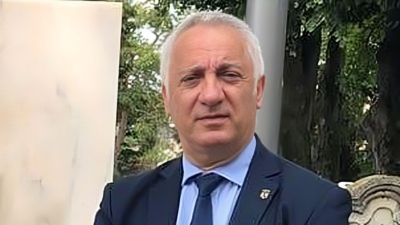 Master Catalin Dancu (photo), from the Bucharest Bar Association, former Consul General of Romania in New York for three years during the first term of U.S. President Donald Trump – who worked directly with the American administration in relation to the White House and the State Department – gave an interview to „Lumea Justitiei's” senior editor, Razvan Savaliuc, regarding the severe deterioration of diplomatic relations between the U.S. and Romania.
Master Catalin Dancu (photo), from the Bucharest Bar Association, former Consul General of Romania in New York for three years during the first term of U.S. President Donald Trump – who worked directly with the American administration in relation to the White House and the State Department – gave an interview to „Lumea Justitiei's” senior editor, Razvan Savaliuc, regarding the severe deterioration of diplomatic relations between the U.S. and Romania.
This situation has been caused by the current government’s abusive annulment of the second round of the presidential elections, as well as by the at least uninspired statements of Romania’s current ambassador to the U.S., Andrei Muraru, and his brother, Alexandru Muraru, a PNL leader, regarding their alignment with Donald Trump’s political opponents (Kamala Harris).
Here is the interview given by Master Catalin Dancu in the newsroom of „Lumea Justitiei”:
Master, how do you see the stance of our government, specifically Romanian diplomacy, towards our strategic partner, the United States? With Donald Trump’s return to power, U.S. policy has taken a 180-degree turn regarding the EU and the war in Ukraine, now announcing peace. Is there still nostalgia in Romania for Biden’s administration, which has been condemned by the current American leadership for numerous missteps that have impacted much of the world? What position should Romania take? Should we align with the EU, which appears to be opposing the United States, or should we follow our own path?
Since the first term of President Traian Basescu, a new foreign policy strategy was emerging, which he called the Bucharest – London – Washington Axis. Those familiar with the times know what the former president was aiming for. Back then, I undertook a working visit to both the U.S. and Israel, where I met with senior representatives from Congress and the Knesset. I realized that, in reality, for its national security policy, Romania needed a Bucharest – Washington – Jerusalem Axis.
During my tenure as Consul General from 2017 to 2020, I built high-level political relationships in cooperation with all civil, political, and religious organizations within the Jewish community in the U.S., which provided crucial support for promoting Romania’s interests during Donald Trump’s first term. The first thing I would do today would be to immediately recall Romania’s ambassador from Washington.
Master, why do you believe that Ambassador Andrei Muraru should no longer represent Romania across the ocean?
His mandate was largely exercised under Joe Biden’s presidency. Naturally, he cultivated—and has acknowledged—extensive relationships within the Democratic Party. In diplomatic circles, he has expressed partisan views in favor of supporting Kamala Harris, the former U.S. Vice President, who lost the presidential election to Donald Trump.
As ambassador, he has so far failed to secure any high-level meeting between Romania’s Foreign Minister and his American counterpart. He was caught unprepared in the face of the new Trump administration’s reactions towards Romania, and I know he lacks solutions for effective communication with the White House, where he practically no longer has access. Romania urgently needs an ambassador who is connected to the Republican administration, someone capable of resetting our strategic partnership, which is currently suffering due to the lack of a major decision from Bucharest regarding the new U.S. administration.
Andrei Muraru will probably soon be history. He has not stood out for anything remarkable—on the contrary, he has even generated internal scandals. What should the next Romanian ambassador to the U.S. do, whoever that may be?
Andrei Muraru has sparked unacceptable controversies for someone in a diplomatic position. He has lived lavishly at the public's expense in a strikingly opulent residence, entirely incompatible with his status. He undeservedly took credit for the success of the Visa Waiver program, even though it was the Ministry of Foreign Affairs that carried out all the collaboration with the Ministry of Internal Affairs and the U.S. Embassy in Bucharest. And the most recent incident—posting Romanian soups on the Romanian Embassy’s website right after Vice President J.D. Vance's speech, which highlighted democratic backsliding in Romania—shows that our ambassador is living in an alternate reality.
The priorities of the next ambassador must focus on three main areas: national security, bilateral trade policies, and strengthening political dialogue between the Bucharest government and the Trump Administration on one hand and with the U.S. Congress on the other, in order to align key information and actions of mutual interest. These priorities must be based on a carefully designed strategy, developed by a team of experts that Romania should coordinate in key areas. The new ambassador must have the ability to maintain personal relationships with the decision-makers in the Trump administration. It would be a major mistake to send an ambassador who, simply because they are a “career diplomat,” is assumed to be capable of establishing such high-level connections. Romania does not need unknown figures, nor does it have the financial power of other states to fund lobbying efforts in Congress and the Trump administration. That is why we must compensate for this by appointing an ambassador who is also accepted by the American side—because that is how strategic partnerships work.
What do you base all these claims on, Master? On your own experience? Do you think Washington still pays any attention to us?
Yes, absolutely. There were two clear instances where an ambassadorial appointment was contingent upon prior approval and acceptance of my name—first, when I was proposed as Romania’s ambassador to Washington during Traian Băsescu’s first term, and second, when I was officially appointed as Romania’s ambassador to Israel in December 2019.
Are you referring to the appointment that Klaus Iohannis refused without justification, despite the fact that Israel had accepted you—at a time when we remember the former president publicly blundered with the phrase “some Jews”?
Yes, that is correct. However, what I can say is that in both cases, the American and Israeli sides carefully vetted me, and the approval for my appointment was unanimous.
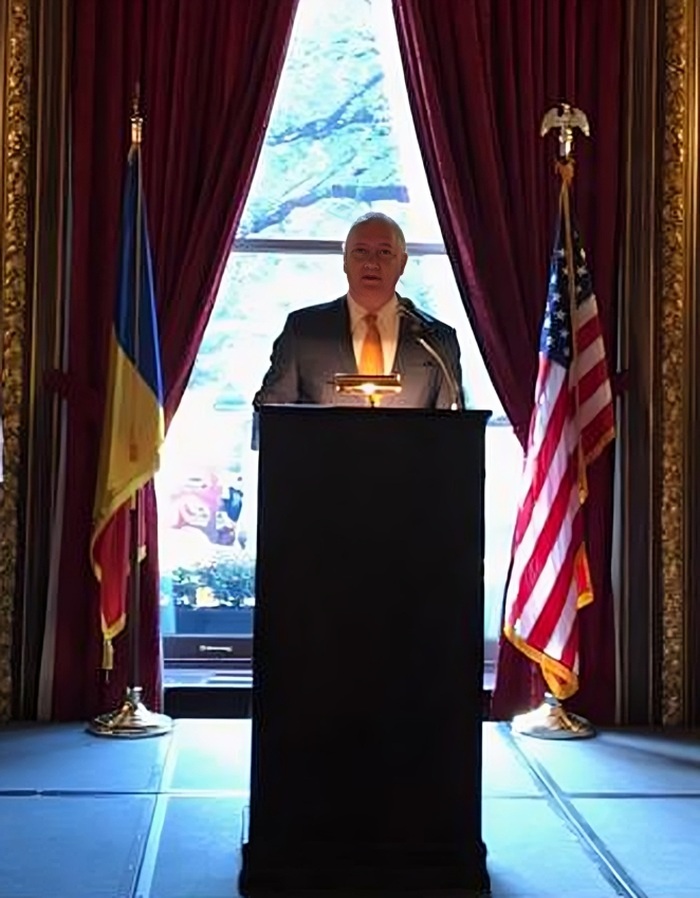
How do you think Romania should position itself politically in its relationship with the U.S.? Should it prioritize the strategic partnership, or should it side with the bureaucrats in Brussels and oppose U.S. policies on certain issues? How can Romania, with its weak politicians who lack true statesmanship, resolve this dilemma?
This is not a matter of choosing an extreme position. Romania must intelligently capitalize on its full potential and the experience it has gained in its relationship with the U.S. by approaching Donald Trump and explaining what the U.S. stands to gain from its partnership with Romania—rather than simply presenting a list of demands and requests. Donald Trump is no longer the same Trump from his first term. His team is no longer the same.
In this new collaboration, I would propose to Donald Trump the idea that, in the process of Ukraine’s reconstruction, Romania should become the European hub—the launching platform for this effort—by bringing the most important Romanian companies into cooperation with American ones so that they can jointly participate in these major projects. I remind those who may have forgotten that this successful formula was previously implemented by Republicans, specifically by Vice President Dick Cheney, who established a “white list” of approved companies for Iraq’s reconstruction after the fall of Saddam Hussein’s regime. This is where I see the key to mutual benefits.
If we succeed in this, leveraging our strategic geographic position, we can reap the benefits of Ukraine’s reconstruction rather than simply being a transit state. I also believe that Donald Trump can be convinced that, as Romania's commercial role in Ukraine's rebuilding process grows, he should agree to increase American investments in Romania as well. Indirectly, this would mean enhancing national security by strengthening the presence of U.S. military bases in our country.
I also want to make a specific remark regarding Elon Musk, the advisor to the U.S. president. A future Romanian ambassador should have the skillset to engage in discussions with Elon Musk and bring him to Romania. The goal would be to present him with the opportunity to establish Tesla’s Central and Eastern European headquarters in Bucharest—or to explore any of his other major future projects. I have followed Elon Musk closely and have noticed that he has an interest in Romania. I believe in his ability to choose a significant project in Romania.
How do you think the U.S. will engage with us when it has declared war on the Soros network in the EU, while Romania has a large number of Soros-affiliated individuals in high-ranking state structures?
This issue will naturally be resolved through the presidential election. The next President of Romania will be compelled—through direct contacts with the new U.S. administration—to surround himself with political and military figures who align with the Trump administration’s new vision. This is not about a political witch hunt; we are talking about much more pragmatic matters.
If the European Union is currently advocating for heavy militarization and extensive support for Ukraine, while Donald Trump is meeting with Vladimir Putin and announcing a potential peace deal, how will Romania position itself between these two opposing forces?
Peace will bring far greater economic, political, and military benefits to Romania, as I have already stated. Given that Romania shares the longest border with Ukraine, it has every interest in seeing this war come to an end. So far, Romania has suffered losses by supporting Ukraine, but in the future, it stands to gain significantly from helping to rebuild it.
The role of the new Romanian ambassador in Washington will be crucial in assuring the Trump administration that Romania is a reliable ally for peace and cooperation. Our positioning will also depend on how Romanian security structures cooperate with American intelligence services in facilitating rapid information exchanges—allowing for clear and efficient decision-making in our best interest. U.S. Vice President J.D. Vance harshly criticized this deficiency in communication at the Munich Security Conference.
As for the European Union, I am convinced that in direct negotiations with the Trump administration—rather than with us—it will come to understand that prioritizing Ukraine’s reconstruction and securing financial benefits outweighs continued militarization and conflict with Russia.
Trump’s America has explicitly accused us of severely damaging democracy and unjustifiably canceling the second round of the presidential elections. What can an ambassador say to explain this abuse, which has shocked the entire democratic world? If you were in this position, what would you explain to Trump? And would you have Bucharest’s backing for such explanations?
First and foremost, an ambassador represents the official position of their country. Right now, as I give this interview, I am aware that Trump, through J.D. Vance, has criticized Romania on this issue because he himself was abusively targeted by the Soros-backed system to be blocked from running in elections—only to ultimately win at the U.S. Supreme Court.
The Court ruled that only the democratic vote of the people holds the sovereign power to decide who can be the President of the United States. The U.S. Supreme Court—just as the Constitutional Court of Romania should also understand—has established that in future elections, there can be no restrictions on candidates. The United States considers any attempt to disrupt or alter such an electoral process by banning a candidate from running as an unconstitutional and undemocratic chaos.
So, in front of Donald Trump, I would explain that if the cancellation of the elections was truly based on the interference of a foreign state, and this interference could be proven, then the will of the voters would indeed have been distorted, and the Constitutional Court’s decision would be justified. However, if such interference cannot be proven, the only response we can give to Trump is that we will rectify the situation through true transparency and openness in the presidential elections scheduled for May 2025.
* Read here the Romanian version of this article
The key message to Trump must be that no candidate should be blocked from running unless there are clear legal grounds. We are running against time. Every lost day means delaying Romania’s acceptance at any meaningful table of dialogue.
Adauga comentariu
DISCLAIMER
Atentie! Postati pe propria raspundere!
Inainte de a posta, cititi aici regulamentul: Termeni legali si Conditii









 Guvernarea legii în România a fost anulată
Guvernarea legii în România a fost anulată 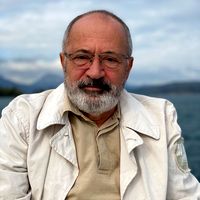
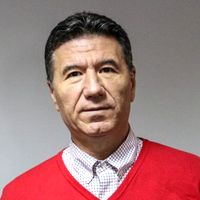
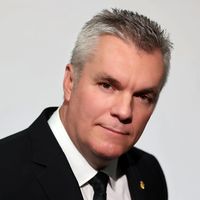






Comentarii